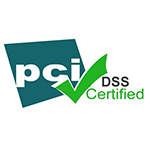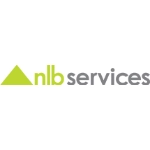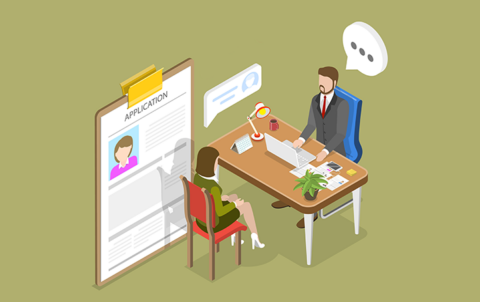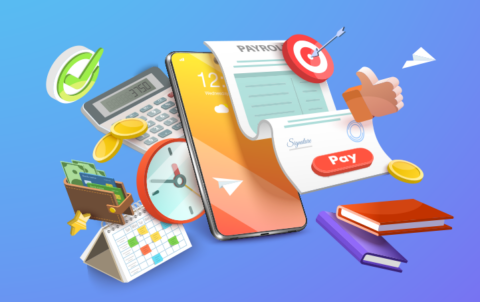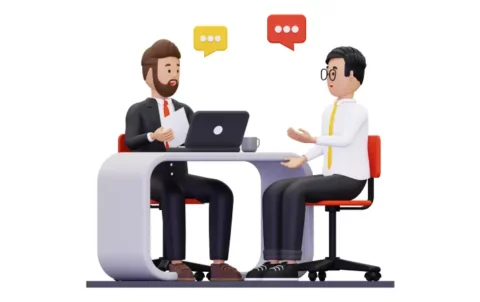© 2025 Next Level Business Services Inc. All Rights Reserved.
How to End an Interview as a Job Candidate (With Examples)
By NLB Services
Knowing how to end an interview professionally can be challenging for candidates. It’s easy to find yourself talking in circles with the employer, which can be both counterproductive and exhausting.
How an interview ends can be as important as how it begins and everything in between. The ending is often the takeaway for the employer about how you can be helpful to the company. For hiring managers, how you close the conversation and how to end it also becomes an opportune time to compile a complete assessment of the company and how it will be helpful to you in the long run from your career point of view.
Fortunately, there are ways you can end the interview cleanly, avoid any awkwardness, and make sure you leave a positive impact on the interviewer.
Summarize Your Interest and Fit
The way you end the interview will dictate the rest of the hiring process and whether you are going to be selected for the position or not. While the information-gathering aspect of the interview is crucial, having a good ending can make the rest of the process much smoother.
We would like to give an example of a crescendo in an orchestra. If the whole musical number sounds nice but ends horribly, what overall impression will you have of the conductor?
Remember, as a candidate, you may be nervous throughout the interview. You will not know what questions you might be asked from the other side of the desk. We would recommend you prepare yourself well for the interview with the most common questions that are being asked in the interview. (can we interlink it with our previously written blog?) Ending the interview on a positive note can make the interaction comfortable and delightful with the job provider.
A closing statement summarizes if you’re the right candidate for the position. Your statements highlight how your skills and work experience can benefit the company in the long run. For example, if you’re interviewing for a marketing coordinator position, your closing statement can detail how the development of promotional materials increased production by xxx percent.
Highlight how your skills align with the job requirements
Before leaving the interview, make sure you reiterate the qualifications that set you apart from the competition and make you the perfect fit for the job. It will help the interviewer to ensure that he is left with a firm idea of why you’re a good candidate for the job.
Talk about your previous experience how the job role was challenging for you, and how you used to tackle situations. Describe situations and ways you handled them gracefully.
Remember, the employer looks for a candidate who possesses self-management skills. These skills allow you to manage your time and be as productive as possible within the workplace. Your body language also plays an vital role during an interview from the beginning, it can greatly impact the interviewer’s perception of your self-management skills.
Self-management skills make sure that you prioritize your tasks effectively by focusing on your professional growth and at the same time contribute to your organization as a whole. Good self-management skills consist of time management skills and self-motivated employees.
Apart from that, you can talk about your organizational skills essential for an employee’s productivity, time management, and goal achievement. Time management is beneficial in any professional position and is highly sought after by employers. Organizational skills are an important aspect of a job which includes planning, critical thinking, attention to detail, and conflict management. When seeking a job, a candidate should have these skills. It increases your chance of securing the job.
Seek clarification on any aspects of the role or company culture
It’s hard to tell how well you’re doing in an interview when the hiring manager has a poker face made of stone until you get the offer letter in your email ID. During the interview, when you get the feeling that your interviewer just isn’t convinced that you’re the best person for the job, go ahead and start asking more about the company (We are assuming you have prepared yourself well and researched the company along with other questions like “why do you want to work here” before coming to attend the interview). Then, think of your greatest professional strengths and how you can be an asset to the company. Use powerful positive words and adjectives to describe yourself in an interview to leave a lasting impression. Be ready to discuss them at length. Discuss your achievements and any additional information about your skills and experience that have not come up during your conversation, and combine it with an overall statement about your candidacy.
Talk about the company’s culture and method of operating. Seek clarification about your role and discuss the deliverables. If anything during the discussion you find you have not done before, take clarification and inform them that you haven’t done it before.
Be polite and ask them about the next hiring step. It will show them your curiosity and interest in the company. Ask your interviewer if they have a certain time frame in which they’ll get back to you with their decision or if there are any other layers of interviews that you will be facing that you should be preparing for.
Express appreciation for the interviewer’s time and reiterate key points from the interview
Making the right choice for the company depends on taking sharp notes from the employer and comparing with the offers if you have any. Even when you do not have another offer in your hand, compare the offer with the checklist you have in your mind. Compare, if the company is offering and matching your demands as per your career goals.
A polite conclusion by thanking the employer not only gives a positive impression to the hiring manager, but, it also outlines how you conduct yourself in a professional setting.
You can conclude the interview by following statements:
- “I am grateful for interviewing with you today. You have given me a clear overview of the position. I think my experience and accomplishments can provide value to the organization. Is there anything else you need to confirm from me that will ensure that I am the right candidate for this position?”
- “Thank you for making time to interview me for the open position. I am excited about the prospect of working in this position and being a part of a highly reputable team. Look forward to hearing from you”
Make sure to thank everyone present during their interview for their time and consideration at the interview’s close. If you do not have their email ID, ask the recruiter or mention their name in your thank you mail. Your thank you mail can be a simple “Thank you for taking the time to meet with me today, and I look forward to hearing from you soon.” or you can combine with a follow up mail after the interview.
Conclusion
Let’s face it—interviews can be exciting and daunting. However, they are essential for you to screen if the company is the right fit to fulfill your career aspirations. The initial screening and choosing the best company require little research to get the desired role. Being a candidate, when you have a lot of options to give interviews and get selected, remember ending the interview properly is just as important as the interview itself. Be professional, and research the company in advance before appearing for the interview. Ask questions from the employer and show your interest and excitement for the job role.
Talent Solutions



